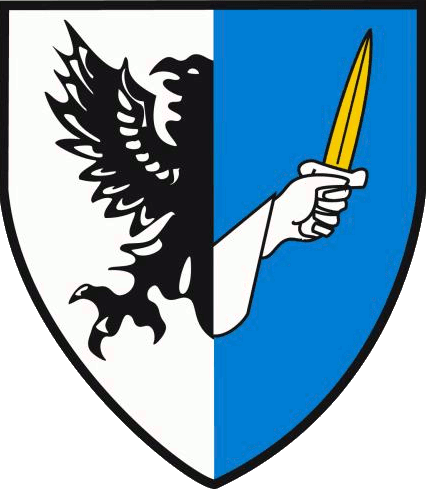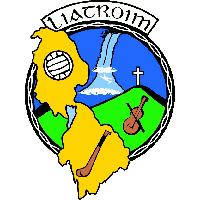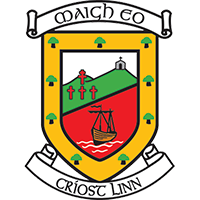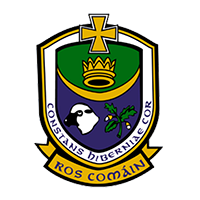Property Control & Vesting
Property Control & VestingProperty Control & Vesting
Vesting
All property including grounds, Club Houses, Halls, Dressing Rooms and Handball Alleys owned or controlled by units of the Association shall be used only for the purpose of or in connection with the p laying of the Games controlled by the Association, and for such other purposes not in conflict with the Aims and Objectives of the Association, that ma y be sanctioned from time to time by the Central Council.
All property owned by units of the Association shall be vested in a number of Full Members as Trustees who shall hold such property upon Trust, to use the same exclusively for the purpose of playing Gaelic Football, Hurling and Handball, and for such purposes, not in conflict with the Aims and Objects of the Association, that may be sanctioned from time to time by the Central Council.
It is important to note that only Clubs vested in t he association can receive Development Grant aid payments. Copies of your Clubs vesting documents should be submitted to the relevant provincial Council.
Property owned by a Club shall be vested in five Trustees, three of whom shall be appointed for and on behalf of the Club, one of whom shall be appointed for and on behalf of the relevant County Committee, and one of whom shall be appointed for and on behalf of the relevant Provincial Council. Property owned by a County Committee, or that owned by a combination of units under the control of a County Committee, shall be vested in three Trustees, one of whom shall be appointed for and on behalf of the County Committee, one of whom shall be appointed for and o n behalf of the relevant Provincial Council, and one of whom shall be appointed for and on behalf of Central Council.
It is necessary to vest real property for the Clubs protection to ensure that:
- It remains under the permanent control of the Club
- It will be used for G.A.A. purposes
- Continuity of G.A.A. Club ownership is maintained
- Certainty of legal ownership by the Club
- It will be eligible for G.A.A. loans and grants
Vesting can be accomplished by the Trustees completing a suitable Declaration Of Trust .
By way of acceptance of their appointment, the Trustees of Real Property , (see below), shall sign a Declaration of Trust , as approved by Central Council, which shall contain the provisions for appointment, removal and replacement of Trustees, as well as regulating the conduct of the Trustees in performing their duties and exercising their powers under the Trust.
There maybe a situation where some Trustees are deceased and where some of the surviving Trustees consider themselves as being too old to continue as Trustees and may request that new Trustees be appointed. If this situation arises, new Trustees are appointed to replace the surviving Trustees or retiring Trustees, and the property is transferred by Deed of Transfer by the surviving or deceased Trustees to the Trustees replacing them and the Trustees appointed to replace the deceased Trustees.
Forms for the Declaration of Trust and Deed of transfer can be obtained from Comhairle Connacht.
Safekeeping of Title Deeds & Declaration of Trust
These valuable documents should be kept in a secure place such as in the Club’s Bank and a record of their place of custody put in the Club minute book. A copy should be lodged with Páirc an Chrócaigh and it might also be useful to retain a copy.
Clubs should ensure that there is at all times a full complement of Trustees for each vested property. Declarations of Trust should now b e examined and, in the light of the foregoing directions, any action found to be necessary should be taken immediately to rectify the Trusteeship. It is advisable to review the situation from time t o time, possibly at the Annual General Meeting.
For a more detailed view on Property Ownership- Vesting of Property and the Appointment of Trustees, check the Club Advice manual, www.gaa.ie/clubzone and click on the link below
For a copy of the Declaration of trust , click on the link below
Real Property
The Club’s real property generally refers to land and whatever is erected upon or affixed thereto. When the title or ownership of the property is registered in the Land Registry all relevant details concerning the property and its ownership are entered on documents known as Folios. Trustees must be registered as the joint owners on the relevant Land Registry folio. The folio is guaranteed by the State to be a confirmed record of the title of the property to which it refers.
The folio describes the following:
(a) the property registered and refers to a plan on the Registry maps
(b) the name and address of the registered owner/s
(c) any burdens, for example, rights of way or charges (mortgages) affecting the property. The fact that one Trustee represents the County Committee and one represents the Provincial/Central Council does not affect the ownership of the property by the Club, it in fact safeguards the Club’s ownership. The Club should adopt a resolution to indemnify and save harmless i ts Trustees in their capacities as such by the Club in accordance with rule 10.12 of t he Club Constitution. In accordance with Rule 5.3
(d) of the Official Guide each unit of the Association shall indemnity and save harmless a Trustee in respect of any loss or out of pocket expenses bonafide incurred by him in or about the execution of their powers or duties.
Trustees
What is a Trustee?
Definition: A Trustee is someone who is given legal authority t o manage assets, including property on behalf of someone else. He/she holds no beneficial interest in the property. Real property of a Club is vested, in accordance with Rule 5.3 of the Official Guide, in five Trustees, three of whom shall be appointed for and on behalf of the Club, one on behalf of the County Committee and one on behalf of the Provincial Committee.
Regarding the three trustees to be appointed for and on behalf of the Club, the Club Executive Committee selects three persons who are t hen appointed by the Chairman as Trustees. The Chairman of the Provincial Council and the Chairman of the County Committee shall each appoint one other Trustee. Each Trustee is responsible to the Executive Committee of the respective body that appointed them.
The Trustees shall by way of acceptance of their appointment sign a ‘Declaration of Trust’ as approved by the Central Council of the G. A.A., which shall contain the provisions for appointment, removal and replacement of Trustees, as well as regulating the conduct of the Trustees in performing their duties and exercising their powers under the Trust. It is their function to ensure that the property is used in accordance with the terms of the Declaration of Trust.
What are the duties of a Trustee?
Duty on Appointment :
- Ascertain the nature and extent of the property comprised in the Trust and understand the terms of the Trust instrument; The Declaration of Trust.
- Required to act in good faith and in a responsible and reasonable manner in their role as Trustee. Ensure that the property which is subject to the Trust is under their control and where necessary must arrange for the property to be conveyed or transferred into the joint names of themselves and their co-Trustees.
- Satisfy themselves that there is no evidence of a breach of trust committed by a previous Trustee which ought to be investigated or rectified.
Duty to Safeguard the Trust Assets :
- It is generally accepted that in relation to the management and administration of a trust that Trustees are expected to use such due diligence and care as an ordinary prudent person would use in the management of his/her own affairs. Trustees are duty bound to act in the best interests of the Club and the Association in dealing with property, which they have control of, under the Trust instrument.
Duty Not to Profit from the Trust :
- It is a well-established rule that a person who occupies a *fiduciary position is not entitled to make a profit from that position unless expressly authorised to do so, or to place himself in a situation where his interest and duty may conflict. *Fiduciary position refers to the position of the Trustee as t hey have a legal and ethical duty to act in the best interest of the Club and the Association.
- Subject to strictly limited exceptions, it is an established principle that a Trustee may not purchase trust property from themselves and their co-Trustees because if this was permitted the Trustee would effectively be both vendor and purchaser.






